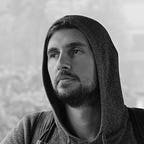The Humans (2021): Are you Afraid of the Dark? -Film Review
Warning: This film review doesn’t contain outright ending spoilers, but I do refer to events that happen later in the story. I’d always recommend you watch the film first and then come back to read reviews afterwards.
“The Humans” is a human film. Its purpose, as I see it, is to draw our attention to the deep but often subtle sense of uncertainty and anxiety that plagues the human experience. For this reason, don’t go into this film expecting a light-hearted family drama. Although there are moments of comic relief, at the heart of this picture is an existential dread that each character is forced to experience alone, despite being surrounded by family.
We meet the humans as they explore a New York City apartment which has been recently rented by Brigid (Beanie Feldstein) and her partner Richard (Steven Yeun). It’s apparent they have only just moved in, leaving the apartment in a state of transitioning emptiness. It’s important to note that the setting, both the apartment itself and its New York City location, are key to what makes this film work, and therefore need to be discussed in depth in relation to the characters and story. Erik (Richard Jenkins), Brigid’s father, doesn’t seem particularly happy with the choice of apartment or it’s New York City location for reasons that become clearer later. We see him walking around the apartment examining its many flaws, from the disfigured marks on the walls to the loud crashing coming from the apartment above. As an audience we are immediately made to feel uncomfortable and out of place here. I think most of us have experienced the subtle sense of anxiety that comes from staying somewhere unfamiliar or unsafe. This is a feeling that grows in intensity throughout the duration of the film. It’s an atmospheric state that grounds the story world and is enhanced by not only the set design, but also the direction, editing, sound design, and use of light.
A central theme of The Humans is deterioration. You can apply this word to accurately describe almost every aspect of this film. Most obviously, the main events of the story, which start off as a somewhat functional family reunion before descending into a hellish nightmare of psychological torment. The apartment itself is deteriorating with the constantly breaking light bulbs leaving the occupants in darkness as the film progresses. The characters are facing a deterioration within themselves and within their personal lives. We are first introduced to the human aspect of deterioration through the grandmother character Momo (June Squibb), whom is an elderly woman struggling with Dementia. Her loss of functionality has made life more difficult for Erik and his wife Deirdre (Jayne Houdyshell), as they have taken on the responsibility of being her primary caregivers despite their own problems. As events unfold, we get a better sense of the role Momo’s declining health has had on the deterioration of their own lives. Aimee (Amy Schumer) is also suffering with her own deterioration as she silently deals with a recent breakup and some serious health problems. As we watch, we also sense a deterioration of the family unit as well as the relationships within it. Throughout life we must all continually come to terms with the difficult truth that things change and will never again be what they used to be. An awareness of this fact often leads us toward feeling insecure, melancholy, and bitter. This, in my opinion, is the dreaded truth that the characters of The Humans are discovering and wrestling with throughout the course of the story.
Certain audiences who watch The Humans may be put off by the slow pace. Personally, I found it to be engaging from beginning to end. I usually enjoy films that meditate on the deeper questions of life using inventive, cinema-friendly techniques, and for me The Humans ticks that box. This film is based on a play, which explains the one location setting and the dialogue heavy script. There’s no doubt that it’s very well written by playwright and screenwriter Stephen Karam. Each of the characters are true to life. By the end of the film, you have a good grasp of who they are and could imagine meeting them at the supermarket or another similarly mundane place. The believability of the characters is of course aided by solid performances from the entire cast.
I’ve not seen the play but can imagine how it would be done based on the visual elements of the film. With that said, the film version justifies its existence by using unconventional cinematic techniques to create an enhanced atmosphere which helps to viscerally convey its themes. One of these techniques was the frequent use of extreme close-ups, many of which were out of focus, to disorient the audience. These types of shots added to the overall sense of claustrophobia, and I think were meant to give us a glimpse into the psychological state of some of these characters. As mentioned previously, another technique that worked to achieve the same goal was the reduction of light over the course of the film, as was the Lynchian style sound design.
The characters in The Humans spend the day together but are very much alone, as we all are in life, as the human experience demands. Throughout the two-hour run-time there was an ever-present darkness slowly creeping in. Each of the characters could sense it but refused to acknowledge it. Unfortunately, there was nowhere to run and by the end of the film the characters were forced to confront this darkness. However, while we do ultimately have to face the darkness of our existence alone, we also possess the power to shine some light on the darkness of those around us, and to live a meaningful life, we must try.
